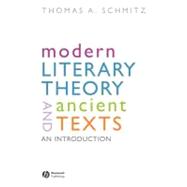
| Contents | p. v |
| Acknowledgments | p. ix |
| Acknowledgments for the English Translation | p. x |
| Introduction | p. 1 |
| What Is, and To What End Do We Study, Literary Theory? | p. 1 |
| Literary Theory and Classics | p. 4 |
| Objections Raised against Literary Theory | p. 6 |
| How to Use This Book | p. 11 |
| Introductions to Literary Theory | p. 13 |
| Russian Formalism | p. 17 |
| The Question of Literariness | p. 19 |
| Roman Jakobson's Model of Linguistic Communication | p. 21 |
| Poetic Language as Defamiliarization | p. 23 |
| Further Reading | p. 15 |
| Structuralism | p. 26 |
| The Founder of Structuralism: Ferdinand de Saussure | p. 27 |
| Saussure's Definition of the Linguistic Sign | p. 19 |
| The Meaning of Differences | p. 30 |
| Structuralism and Subject | p. 33 |
| Structural Anthropology | p. 34 |
| Is Structuralist Interpretation Possible? | p. 38 |
| Structuralist Definitions of Literary Genres | p. 40 |
| Further Reading | p. 42 |
| Narratology | p. 43 |
| Vladimir Propp's Analysis of the Folk Tale | p. 44 |
| Greimas's Actantial Theory of Narrative | p. 47 |
| Roland Barthes and the Study of Narrative Texts | p. 50 |
| Structuralist Plot-Analysis: Gerard Genette | p. 55 |
| Irene de Jong's Narratological Analysis of the Homeric Epics | p. 60 |
| Further Reading | p. 62 |
| Mikhail Bakhtin | p. 63 |
| Bakhtin's Life and the Problem of His Writings | p. 64 |
| Dialogism and the Novel | p. 66 |
| The Carnivalization of Literature | p. 69 |
| Menippean Satire and Ancient Carnivalesque Literature | p. 71 |
| Further Reading | p. 76 |
| Intertextuality | p. 77 |
| Leading the Way: Julia Kristeva | p. 77 |
| Further Developments of Intertextuality | p. 78 |
| Gerard Genette's Model of Hypertextuality | p. 80 |
| Intertextuality in Virgil | p. 83 |
| Further Reading | p. 85 |
| Reader-Response Criticism | p. 86 |
| Empirical Reception Studies | p. 87 |
| Aesthetics of Reception | p. 88 |
| American Reader-Response Criticism | p. 91 |
| Wheeler's Analysis of Ovid's Metamorphoses | p. 94 |
| Further Reading | p. 96 |
| Orality - Literacy | p. 98 |
| Oral Cultures: The Theses of Goody and Watt | p. 99 |
| What Does "Orality" Mean? | p. 102 |
| Oral Poetry | p. 104 |
| The Homeric Epics as a Test Case | p. 106 |
| Further Reading | p. 111 |
| Deconstruction | p. 113 |
| The Foundations: Derrida's Criticism of Logocentrism | p. 114 |
| Deconstruction in America | p. 120 |
| Objections to Deconstruction | p. 122 |
| The Role of the Author | p. 124 |
| Stanley Fish's Model of "Interpretive Communities" | p. 127 |
| The Responsibility of the Interpreter | p. 130 |
| Deconstruction's Merits and Demerits | p. 136 |
| Deconstruction in Antiquity? Socrates und Protagoras | p. 137 |
| Further Reading | p. 139 |
| Michel Foucault and Discourse Analysis | p. 140 |
| The Power of Discourse | p. 141 |
| Objections to Foucault's Analysis of Discourse | p. 145 |
| Foucault and Antiquity | p. 149 |
| The Debate about Foucault's Interpretation of Ancient Sexuality | p. 153 |
| Further Reading | p. 157 |
| New Historicism | p. 159 |
| New Historicism and Deconstruction | p. 160 |
| New Historicism and Michel Foucault | p. 165 |
| Objections to New Historicism | p. 167 |
| New Historicism and Antiquity | p. 171 |
| Further Reading | p. 174 |
| Feminist Approaches/Gender Studies | p. 176 |
| The Feminist Movement and Definitions of "Woman" | p. 176 |
| Feminism in Literary Criticism | p. 178 |
| French Feminism | p. 180 |
| Pragmatic Feminism in Literary Criticism | p. 182 |
| From Images of Women to Gender Studies | p. 187 |
| Queer Theory | p. 189 |
| Gender Studies and Attic Drama | p. 191 |
| Further Reading | p. 193 |
| Psychoanalytic Approaches | p. 195 |
| Interpreting Dreams, Interpreting Literature | p. 197 |
| Three Attempts at Psychoanalytic Interpretation | p. 200 |
| Language and the Unconscious: Jacques Lacan | p. 202 |
| Further Reading | p. 204 |
| Conclusions? | p. 205 |
| Whither Now? | p. 207 |
| Additional Notes | p. 209 |
| References and Bibliography | p. 215 |
| Index | p. 233 |
| Table of Contents provided by Ingram. All Rights Reserved. |
The New copy of this book will include any supplemental materials advertised. Please check the title of the book to determine if it should include any access cards, study guides, lab manuals, CDs, etc.
The Used, Rental and eBook copies of this book are not guaranteed to include any supplemental materials. Typically, only the book itself is included. This is true even if the title states it includes any access cards, study guides, lab manuals, CDs, etc.